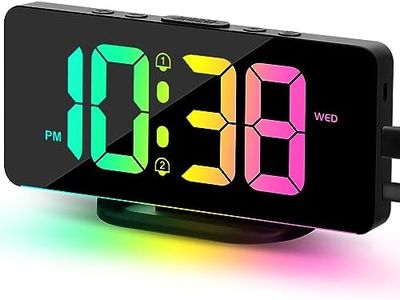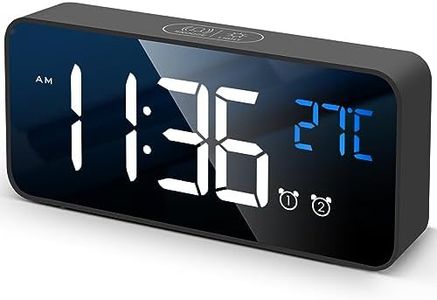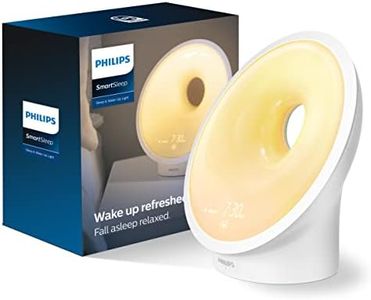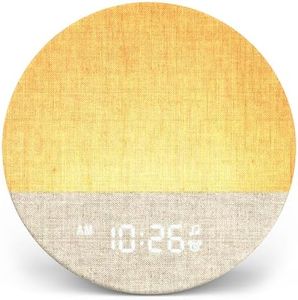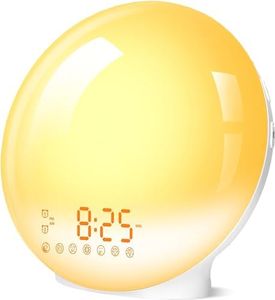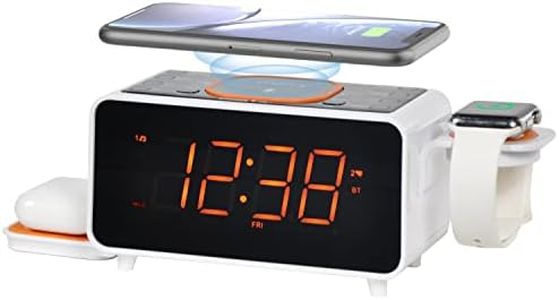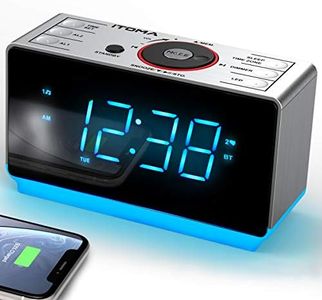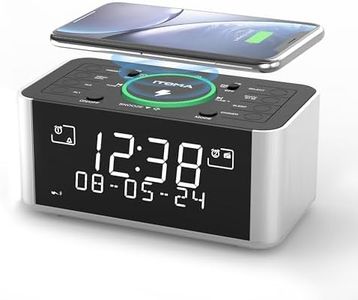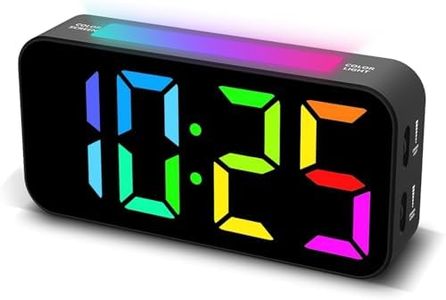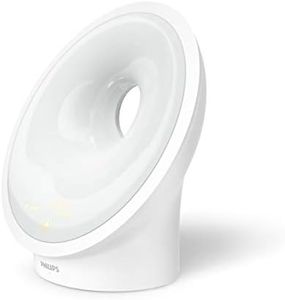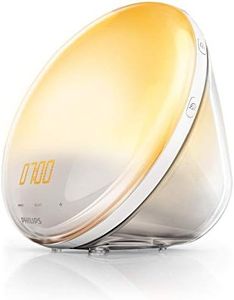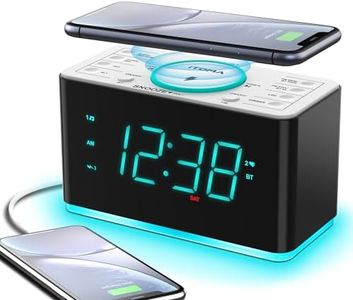We Use CookiesWe use cookies to enhance the security, performance,
functionality and for analytical and promotional activities. By continuing to browse this site you
are agreeing to our privacy policy
10 Best Alarm Clocks
From leading brands and best sellers available on the web.By clicking on a link to a third party's website, log data is shared with that third party.
Buying Guide for the Best Alarm Clocks
Choosing the right alarm clock is all about understanding your own sleep habits and preferences. Alarm clocks come in many forms these days, from traditional analog types to high-tech digital models packed with extra features. When shopping, you want something that will reliably wake you up, is easy to use, and fits your lifestyle. Reflect on where it will sit, the environment it will be in, and if you need any special features to help you start the day right.Display TypeThe display type refers to whether the alarm clock uses analog hands, a digital LED/LCD screen, or a projection onto a wall or ceiling. This matters because some people find it easier to read one style over the other, especially at a glance during the night. Analog displays are classic and often gentler on the eyes, while digital ones are usually brighter and can offer more information. If you are sensitive to light, look for dimmable options or analog ones. Those who want extra convenience might like projection types, as they let you check the time without lifting your head.
Alarm Sound and VolumeAlarm sound and volume determine how the alarm wakes you up. Some clocks offer simple beeps, while others allow you to wake up to radio, music, nature sounds, or even vibration. Adjustable volume is important for customizing the wake-up experience, especially if you're a heavy or light sleeper. If you wake easily, a softer sound or gradual increase in volume might suit you best. Deep sleepers or those in noisy environments may need a louder, even vibrating alarm. Consider who else is in your home—shared spaces may call for gentler or more personalized alarms.
Power SourceThe power source is whether the clock plugs into the wall, uses batteries, or both. Battery-powered clocks are portable and reliable during power outages but need regular battery replacements. Plug-in models are low maintenance, but won’t work if there's a power cut. Some modern clocks combine both for maximum reliability. Choose the power source depending on where you’ll use the clock (e.g., near an outlet or for travel) and how much you worry about power interruptions.
Additional FeaturesSome alarm clocks offer extra features like built-in radios, USB charging for devices, Bluetooth speakers, sunrise simulation lights, or smart connectivity. While not essential, these can greatly enhance the alarm clock’s usefulness. For example, a sunrise simulation light can help you wake up more gently, improving your mood in the morning, especially in dark winters. If you like multitasking gadgets or have specific routines, consider what extra features would actually improve your mornings rather than just add clutter.
Size and DesignThe overall size and look of the alarm clock affect how well it fits on your bedside table and how it matches your room decor. Compact models save space and are ideal for travel, while larger clocks may have bigger and clearer displays. Sleek modern designs may blend into your room, while retro styles can make a statement. Pick the size that fits your space and a look that makes you happy to see it every morning.
Ease of UseEase of use is about how simple the clock's controls are for setting the time and alarms, switching them off, and adjusting settings. Complex clocks can be frustrating, especially when you’re groggy. If you prefer straightforward devices, look for clocks with larger buttons and clear instructions. If you need multiple alarms or customized settings, check how intuitive the interface feels. Choose what feels comfortable, especially if you’ll be setting alarms in low light or when half-awake.
